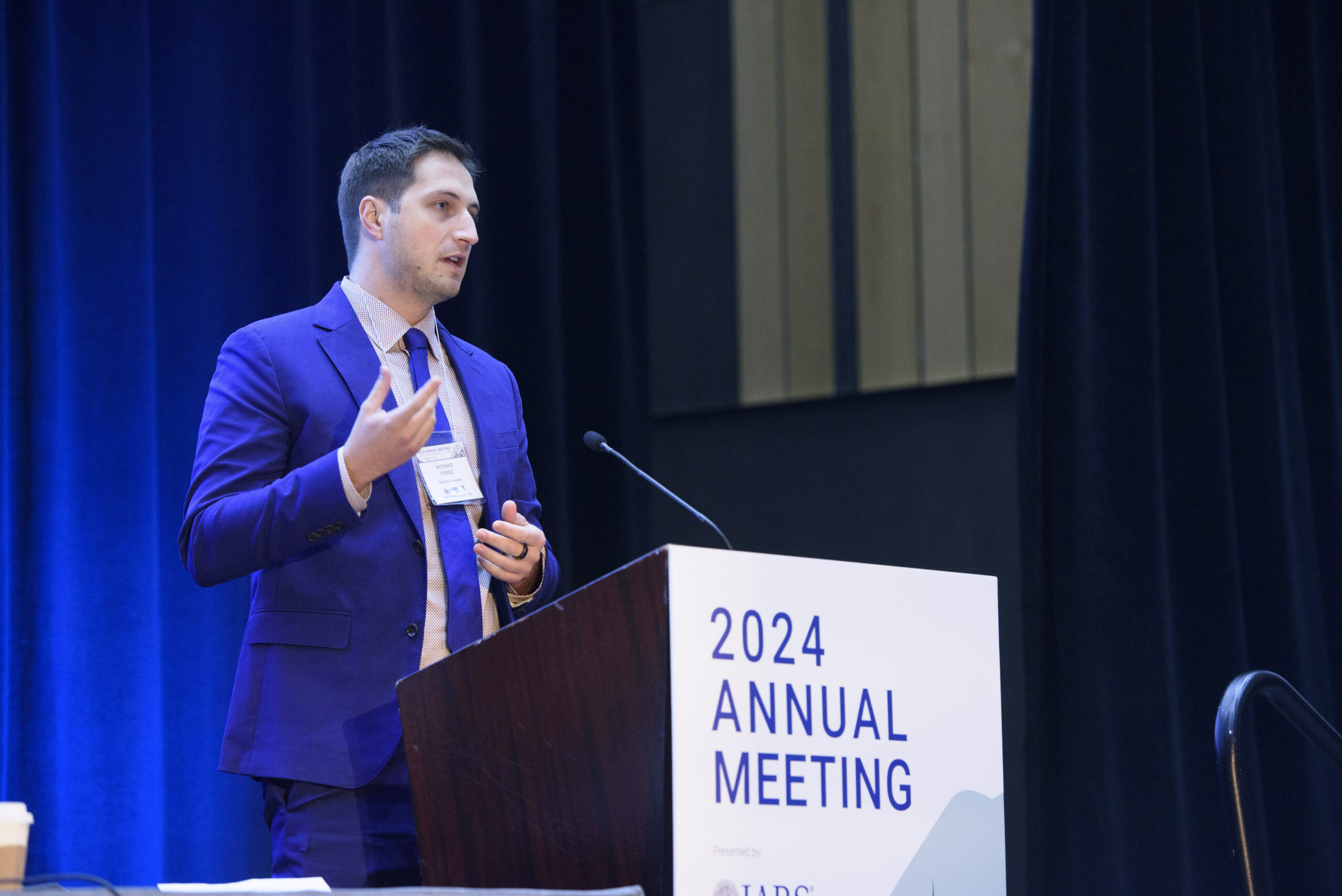An interview with the Kosaka Top Abstract Presented by a Scholar recipient, Richard K. Perez, MD
Deciphering the Translatomic Perturbations Associated with Acute and Chronic Pain in Mouse Spinal Cord Astrocytes
 Richard K. Perez, MD
Richard K. Perez, MD
Anesthesiology Resident
Stanford University
Stanford, CA
Abstract Presentation:
Kosaka Best Abstract Awards Session, Sunday, May 19, 2024, 7:00 am – 8:30 am PT
After watching a family member struggle with chronic pain and seeing the domino effect it had on this patient’s life, Richard K. Perez, MD, anesthesiology resident at Stanford University, dedicated his research journey to understanding the mechanisms of chronic pain and pursuing answers on how to improve the quality of life for these vulnerable patients. With a current investigation focused on clarifying what cell state changes are occurring in spinal cord astrocytes in the context of acute and chronic pain, Dr. Perez is slowly demystifying the nature of this condition. During the Kosaka Best Abstract Awards Session on Sunday, May 19 at the 2024 Annual Meeting, presented by IARS and SOCCA, his research, “Deciphering the Translatomic Perturbations Associated with Acute and Chronic Pain in Mouse Spinal Cord Astrocytes,” was recognized with the Kosaka Top Abstract Award Presented by a Scholar. With this prestigious acknowledgement of his research path, Dr. Perez hopes to make great strides towards an independent and productive research career. In the following interview, he shares what drew him to this specialty, this specific area of research, and his hopes for his very bright future in anesthesia research.
1. For this research…
I am a research-track resident researcher.
2. What drew you to the anesthesiology specialty?
The ability to bridge people through the perioperative period both from a hemodynamic standpoint and a pain and comfort standpoint really drew me to the field. I can’t think of another field where your individual actions have such immediate and consequential results.
3. What drew you to this area of research?
The debilitating nature of chronic pain and the lack of thorough understanding of its various possible mechanisms of action drew me towards this research area. As a family member of someone with chronic pain, I have seen the domino effect it has on the patient’s life.
4. What are the goals you most want to accomplish in your work with this research project?
Our hope is that this work can provide insight into clarifying what cell state changes are occurring in spinal cord astrocytes in the context of acute and chronic pain.
5. What is the potential impact of your research on the field of anesthesia and patient care?
Although not immediate, the more we understand about chronic pain, the better we will be able to care for patients with chronic pain.
6. What are the benefits of presenting your research during abstract sessions at the IARS Annual Meeting?
Attending IARS and presenting this research has allowed me to meet experts across the field of anesthesiology and to connect with them and discuss ideas I have for further research projects.
7. How do you feel about receiving the Kosaka Best Abstract Award?
I am incredibly honored!
8. How will this award affect your research and professional trajectory?
The Kosaka Best Abstract award reinforces the idea that I am on the right track to one day becoming an independent and productive researcher in the field of anesthesiology.
9. Is there anyone else you wish to acknowledge as part of this research team?
Soon-to-be Dr. Janelle Siliezar-Doyle, PhD (will defend her PhD work later this year). This project is a large portion of her thesis work, and she is responsible for the excellent experimental design and bench-top work.
10. Outside of your research, what might someone be surprised to learn about you?
I have a brother who is also a physician researcher in the field of anesthesiology and was also presenting at IARS this year.
“The Kosaka Best Abstract award reinforces the idea that I am on the right track to one day becoming an independent and productive researcher in the field of anesthesiology.”
– Richard K. Perez, MD, Kosaka Top Abstract Presented by a Scholar Recipient
International Anesthesia Research Society
